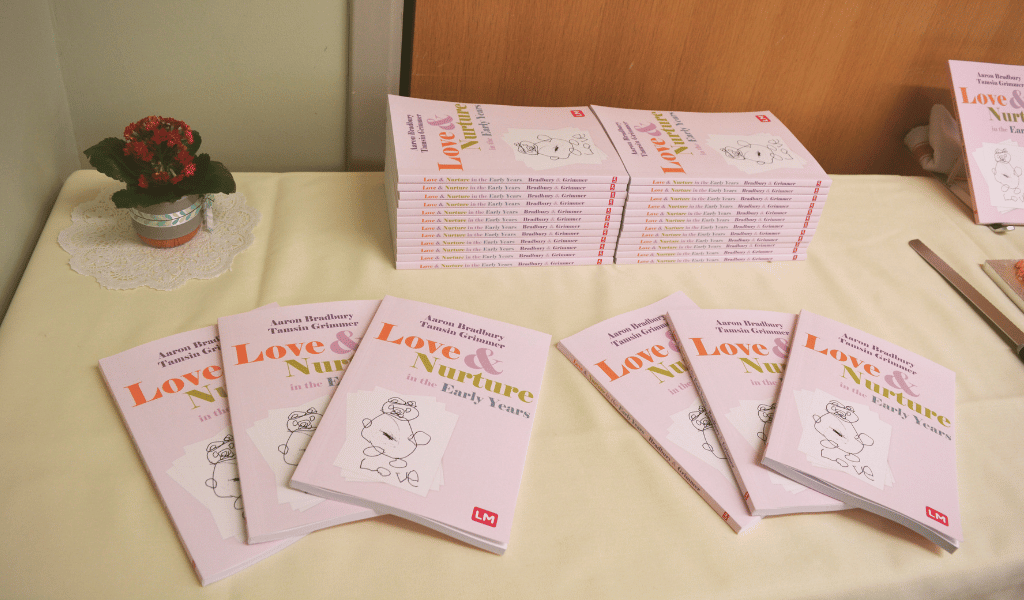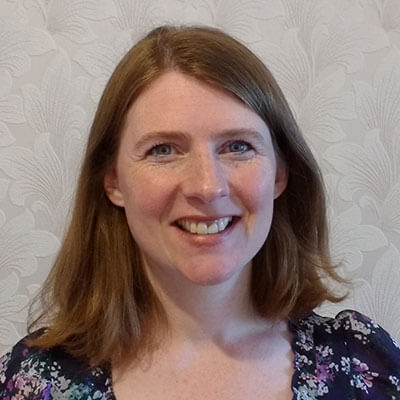When Aaron and Tamsin talk to others about their work around love and nurture – they occasionally come across people who respond, “Love and nurture? What’s that got to do with early childhood education?”
In this CPD blog post, they explain why love and nurture matter more than ever and what you can learn from their latest book – over to them…
We know that the early experiences children have shape the architecture of their developing brain and thus if a child is loved and nurtured, the knock-on impact is that they will be more ready to learn. In addition, change in the world begins with our youngest children because how we love and nurture our children today will determine how loving and nurturing they become in the future. This means we are growing and developing a future society.
In our book Love and Nurture in the Early Years (2024), we cover the science of love, care and nurture in the early years, which explores the neuroscience and theory underpinning the concept, including the new area of epigenetics, and we define both love and nurture. We discuss what these concepts look like in practice, both in terms of the child and in linking with love languages and using positive touch. We recognise the importance of building relationships with families and consider how we can develop a whole-setting approach, including adopting relational practices and developing a loving and nurturing learning environment.

We try to include practical ideas of how to implement a loving and nurturing approach. For example,

In our book we share a model called ‘The Child in the NOW’ which embeds a loving and nurturing approach into daily practice and explores how we can support children in terms of belonging, becoming, being and believing. Let’s unpick these in more detail:
Belonging for children
To belong, one must have an established relationship or connection with a group of people. It is possible for children to be emotionally strong, self-assured, and able to deal with challenges and difficulties when they feel a sense of belonging and pride in themselves and their families, their peers, and their communities.
Becoming
During childhood, children’s identities, knowledge, understandings, capacities, and skills change. Events and circumstances shape them in many ways. The process of becoming reflects the rapid and significant change that occurs in the early years as children learn and develop.
Being
As with many aspects of development and learning, children don’t develop a sense of being on their own. The caregiver and child engage in sensitive, responsive exchanges within them, which grows out of attuned relationships.
Believing
It means many things to believe in a child, including providing a nurturing environment for all children, keeping a child’s best interests in mind, providing a child with the opportunities they need to succeed. Even if they don’t believe it, you should speak into their inherent goodness; providing a child with choices and a child should not be exposed to adult insecurities.
We are aware that generally people value what they measure, as the Children’s Society notes in relation to wellbeing,
‘If schools [and settings] do not measure the wellbeing of their children, but do measure their intellectual development, the latter will always take precedence’ (2015, p.11).
We believe the same is true for love! We need to measure love and nurture because this provides a clear message about what we value and deem to be important within early childhood. To this end, Aaron and Tamsin are developing some self-audit materials, including an early childhood rating scale which attempts to measure love and nurture, so watch this space!
Nurture and love really can change the world and bring about a more peaceful society, but it begins with us and how we support each child in the NOW. Let’s adopt an ethos that loves and nurtures our children and see ourselves as brain architects, shaping our world!
You can buy Tamsin and Aaron’s book from Amazon and you can also get more useful insights on their latest Kinderly webinar – click on the image for further info!
About the authors

Tamsin Grimmer is a director of Linden Learning, an associate of Early Education, principal lecturer at Norland College and an Emotion Coaching Practitioner for Emotion Coaching UK. She has a wealth of experience supporting Early Years Teachers and educators. She is passionate about young children’s learning and has written several books aimed at educators and is a true advocate for adopting a loving pedagogy.

Dr Aaron Bradbury is a Principal Lecturer for Early Years and Childhood (Sociology, Health and Psychology, Special Educational Needs, and Inclusion) at Nottingham Trent University. He is a Member of the Coalition for the Early Years on the Birth to Five Matters, Vice Chair of the Early Childhood Studies Degrees Network and currently researching on Early Childhood workforce development. He has a passion for making the voice of the child, nurturing through a diverse lens and pioneers of early childhood the foreground of practice. So much so that he has co-authored a range of early childhood books including the best-seller Early Childhood Theories Today. Aaron manages his own website and community called Early Years Reviews.